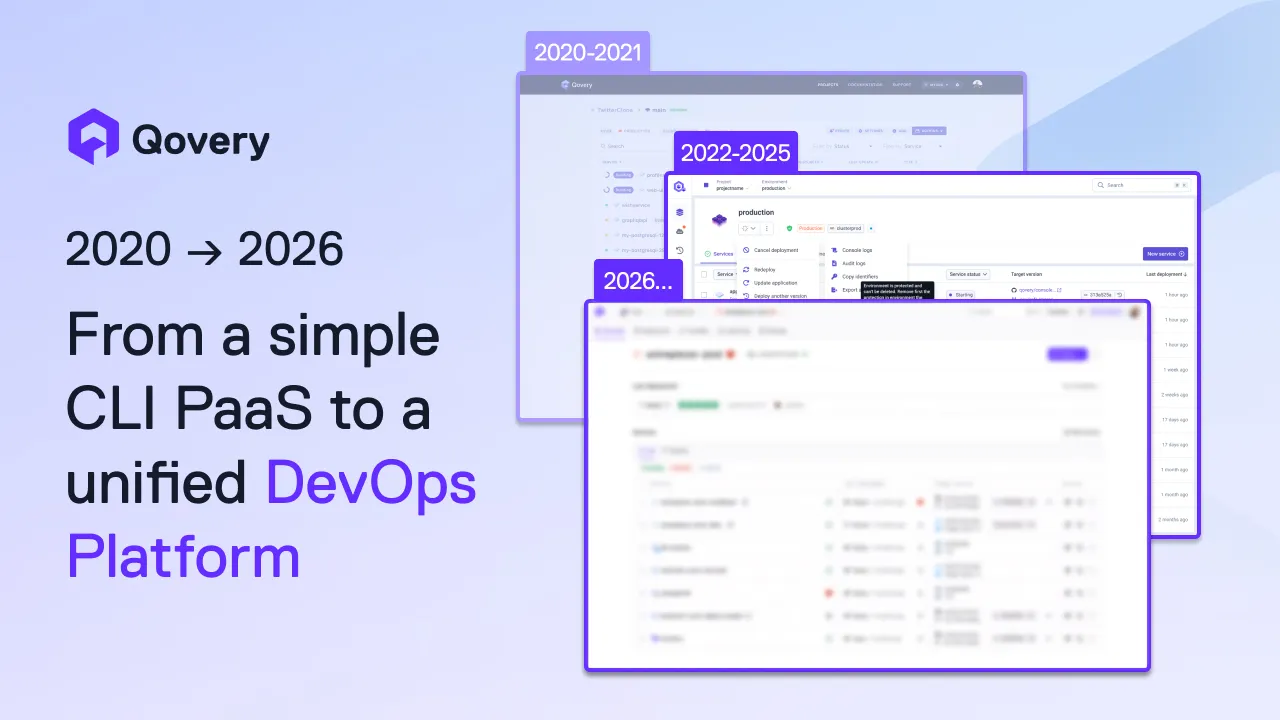Our Blog
Learn, build, and scale with the Qovery Blog. Access practical insights that help teams solve problems faster and deliver real results.


DevOps

Developer Experience

9
minutes
January 22, 2026
Top 10 DevOps Automation Tools in 2026 to Streamline Mid-Market Infrastructure
Scale your engineering organization without the headcount hit. Compare the top 10 DevOps automation tools for mid-market teams, from IaC leaders like Terraform to unified platforms like Qovery.
Read more


Thank you! Your submission has been received!
Oops! Something went wrong while submitting the form.
Case studies
.webp)






